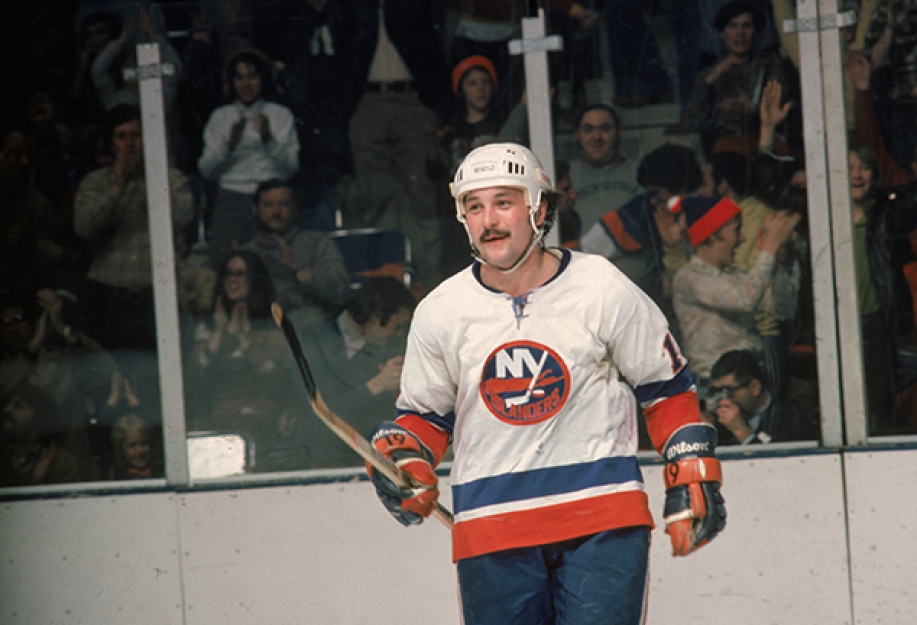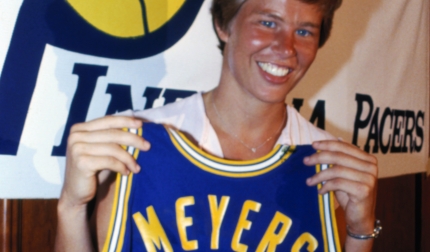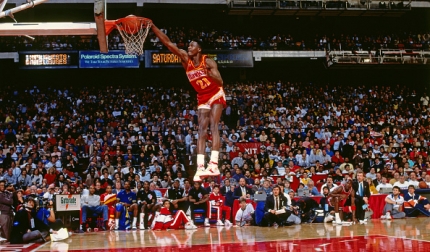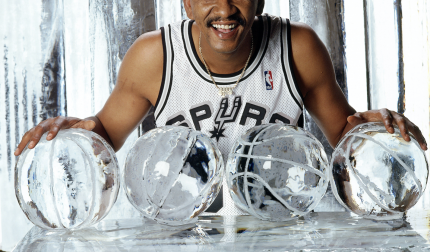How small of a small town are you from?
I’m from a community of 200 people; it’s probably down to 110 now. It’s a prairie town called Val Marie, about 10 miles north of the US border. We’re in the southwest corner of Saskatchewan, so it was a farming community, ranching, lot of cowboys and rodeos. We all grew up watching Hockey Night in Canada. It was everyone’s dream to play in the NHL. My first love was baseball, because you could play seven months out of the year. But the opportunity was always in hockey.
How tough was junior hockey, coming from that environment?
When I was 14, my dad realized that if I was going to play at a higher level I might have to go somewhere else to do it. I probably wouldn’t let my kids leave home at 14, but it was a different era. I was homesick all the time. I was only an hour away from home playing at Swift Current, but it seemed like the other side of the world.
Did you think about quitting?
Sure. Western Canada junior hockey had a lot of huge guys. I quit one year right around Christmas. I went home and somewhere in the back of my mind I thought, I’m not going to go back. I had a black eye; I lost all my teeth. Mom was making all my favorite foods for Christmas. I started planning to go back to school the next week, but I didn’t tell anyone. The next morning, Tiger Williams, my teammate, knocked on the door about 7 a.m. He told my mom that the coach told him to pick me up, and that if Bryan doesn’t come back, he shouldn’t come back either. It was comical. The whole way back, Tiger said, “You know, I’ll take care of you. No one is going to touch you.” And then hockey became fun again. Tiger was a big influence on me.
You entered the NHL at 19. Given that you still hadn’t finished growing, was it intimidating playing against professional men?
It was exciting. You realize really quickly that you’re not nearly as strong as these guys. I felt like there wasn’t anything anyone was going to do to me. We had so many brawls in juniors, and I came out unscathed. I had to play smarter and pick my battles. I’m not going to run over Guy LaFleur or Gilbert Perrault because they’re not going to run me over. But am I going to spank Bob Gainey every chance I get? Absolutely. He’s trying to beat the crap out of me, so I’m going to give it back to him.
What was it like to adapt to becoming a pro at such a young age?
I felt a little ostracized because I couldn’t hang out with the guys off the ice. They would go to get a pitcher of beer at lunchtime, and I was just looking for a sandwich. I was the youngest guy on the team and the drinking age was 21. They would say, “Come on, we’ll get you into the bar.” Then I wouldn’t get in and they would laugh, and it was a $50 cab ride back to the hotel. Then when I turned 21, they lowered the drinking age to 18.
Did you have a welcome to the NHL moment?
I remember being in a stare down with Jerry Korab and Jim Schoenfeld of the Buffalo Sabres during an exhibition game. I still remember how overpowered I was at the time. They both looked like they wanted to rip my head off. I thought if I back off now, I’m going to be backing off my whole career. So I said “OK, here it goes. Which one of you guys am I going to scrap with here? And then they just peeled off! And I was so glad I stood up for myself. Then when I turned around, I had Bobby Nystrom and Clark Gilles looking over my shoulder. I said, “Thank you, God.” But I realized I had really good teammate, and I have to stand up for myself and take my knocks, but I have to stand up for my guys too.
Do you have a better appreciation of winning four consecutive Stanley Cups for the New York Islanders now then you did while you were playing?
No doubt. We were walking proud, but we always felt we had to defend it again. Now, with more time to reflect I definitely appreciate it more. A few years back, I had a guy tell me, “ You know you’re only one of three players to win the Hart, Art Ross, Calder and Conn Smythe Awards (MVP, scoring title, rookie of the year and Stanley Cup Finals MVP). I said, “Really, who are the other two guys?” He said “Bobby Orr and Mario Lemieux.” I tell that story to kids when we visit school. I’m like, “See, if it can happen to a guy like me, it can happen to you!”
Do you think you would have enjoyed today’s game more where you would have had the opportunity to change teams and make more friends in the league?
I played on two teams, the Islanders and the Pittsburgh Penguins. When I left the Islanders, they basically said that I had nothing left. They felt they drained me of everything that I had as a player. As soon as I got to Pittsburgh, everyone appreciated everything I did on and off the ice. I said to myself, “I should have left years ago!” You think no one outside your teammates and community will appreciate you, and it’s not the case at all.
You won two Stanley Cups in Pittsburgh. What was that like?
It was great. I still live here now. When I got to the team, Jaromir Jagr had just come to the States. He didn’t speak any English and I didn’t speak any Czech, but we became roommates. He would carry the puck all the way down the ice, and I would say, “Jaro, we have this thing called ‘give and go.’ I’ll give you the puck right back. Once he learned the NHL game, he became a truly great player.
Was mentoring a player like Jagr as rewarding as winning the Cups there.
As a veteran, these players are much younger than you, but they are still your peers because you play alongside of them. So when a player like Jagr or Steve Yzerman accepts and award and mentions your name, what a high honor it is!
Did you enjoy coaching in the NHL?
I enjoyed the instructional side and the bench coaching side. But you put so much pressure on yourself in that hurricane of coaching, the stress you endure, I could never do it again. I think the instructional part of the game, especially on offense, will always be in my blood. I would love to be able to mentor players almost as more of an enhancement to the coaching staff, not in opposition to anything they are teaching. Sometimes you watch a game on television and you can see, even the smallest adjustments can turn a 3-goal scorer into a 10-goal scorer.
What do you try to pass on to younger kids when you instruct them today?
I tell them that not everyone can be a great player, but everyone can be a great teammate. Everyone has a role on a team, and I think that’s something that kids and parents can relate to. It’s also always important to have a passion. I’m making music now. I’m playing at the Saskatchewan Country Music Awards. I’m not a professional musician by any means, but I love it. I’ll do it for a few more years until I get too old to strum the guitar.





